#anti fat shaming
Text
5-17-2023
Man fuck disordered eating.
All my homies hate disordered eating.
It's taken like 2-3 years to finally let go of ALL those awful habits and fucking eat and not feel bad about it and I'm loosing more weight now than I did back then.
If you're looking for a sign to think about recovery THIS IS IT!
You need food and drinks!
Food and drinks are good!!!
You need the energy to exercise and live and keep your body functioning!!!!!!!!!!
YOU NEED FOOD AND DRINKS TO LOSE WEIGHT IN A HEALTHY WAY AND KEEP IT OFF!
I HAVEN'T STUGGLED WITH THE 'GAIN AND LOSE THE SAME 5 LBS' THING IN MONTHS!
I'M DOWN 10 POUNDS ALREADY AND THEY'RE STAYING OFF!
AND DO NOT FUCKING FORGET loosing weight TAKES TIME! EAT AND DRINK AND EXCERCISE AND BE CONSISTANT!
YOU DON'T NEED TO BE A CERTAIN WEIGHT TO LIVE AND HAVE FUN AND EXIST AND BE ATTRACTIVE!
LIVE AND HAVE FUN EVEN IF YOU'RE NOT AT YOUR GOAL YET!
LIVE AND HAVE FUN EVEN IF GAINING OR LOOSING WEIGHT ISN'T SOMETHING YOU WANNA DO! (unless it's for health reasons, then you know what you need to do AND YOU CAN DO IT!)
YOU'RE DESERVING OF KINDNESS NO MATTER WHAT YOU LOOK LIKE! EVERYONE IS! BE KIND!
ily
#<3#save a life#important#ED#ed recovery#fr catch me with snacks in my bag all the time#and I'm so happy about it! :D#eating disorder recovery#recovery#anti fat shaming#anti skinny shaming#and most if not all the people you use for thinspo aren't starving#they're dancers and swimmers and models and people who are tall and people who are just skinny#MOST IF NOT ALL OF THEM EAT! SO CAN YOU!#may post sum ootds later because I was saving that for “when I'm skinnyy enough”#fashion#ootd#ily so much#thanks for reading
7 notes
·
View notes
Text
Just as a reminder, Jonah Hill was at best a controlling asshole and at worst a predator. And he still didn't deserve the years of bodyshaming he received.
Yall are so quick to defend fat people from being bodyshamed when they're good people and so quick to support that exact same behavior for shitty fat people. But it's still fucking wrong.
Make fun of Jonah for being controlling. Make fun of him for being an asshole. His body has 0 to do with the fact he's a bad person.
#anti jonah hill#fatshaming#body positivity#body positive#fat acceptance#fat positivity#anti bodyshaming#anti fat shaming#social discourse#discourse#brett does discourse
5 notes
·
View notes
Text
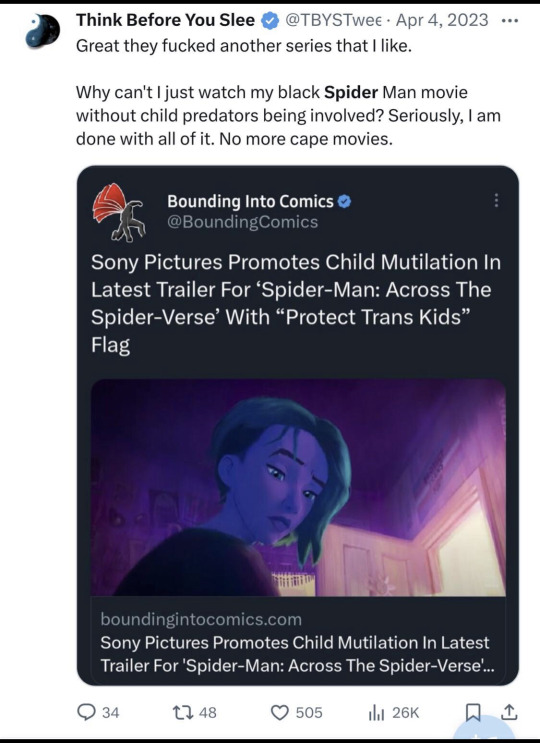
Are people really defending this run-of-the-mill anti-woke YouTuber just because Illymation wanted him reported for his reaction video to ‘Perks of Being the Fat Kid’??
#illymation#think before you sleep#youtube animators#anti woke#youtube drama#fat shaming#fucking grifters#across the spiderverse
246 notes
·
View notes
Text

#anti marauders fandom#anti marauders fanon#fat shaming#fatphobia#cw fatphobia#peter pettigrew#james potter#sirius black#remus lupin#the marauders#marauders#marauders era
100 notes
·
View notes
Note
What do you think is the worst case of hypocritism in Harry Potter.
I just realized how many inbox messages I have. Gosh, I need to address those...
It's hard to choose but if I had to choose:
In the story itself
The morality of an action depends on who the character is. The purebloods like the Malfoys and Blacks are bigots for scorning mudbloods but it's A-ok for the Gryffindor characters to discriminate against and endanger muggles and magical creatures. If Draco disrespects Hagrid it's a sin, but when Hermione disrespects Trelawney she's a girlboss. Draco objectively and simply points out that Molly is fat in a relatively mild Yo Mama joke and it's framed as bullying (no complaints there). But Harry describes how obese Dudley is in excruciating and needless detail, it's funny. This is the same Harry who regularly compares people to animals when he describes appearances. Draco bullies Neville - it's wrong (as it should be). Harry and co. bully and degrade Neville - it's funny and ok. There are many more examples. JKR is a disgusting and mean-spirited writer. I have several 'Double Standards' posts because of this.
In HP fandom
This extends to how HP fandom views certain fans. In particular, some Hermione, Romione and other Gryfindor stans will sneer and condescend to you if you happen to like characters like Draco and other Slytherins like the Death eaters. And if you criticize their darlings, they discredit your criticisms because you like the 'morally questionable' antagonist. It's hilarious how these people refuse to admit that THEIR characters are morally questionabletoo. Almost every HP character is morally questionable. They act as if the golden trio and the other Gryffindor characters are heroes who are justified in all their crappy actions. I have seen a disgusting Hermione stan (whom I blocked) condone and justify Hermione kidnapping and imprisoning Rita, erasing her parents' memory, attacking Ron with canaries and scarring Marietta for life. If stans like that don't outright say Hermione was right, they downplay it by saying she's a young girl and/or she had no choice. They say the criticism is overblown. Yet, they have no issue overblowing the actions of the unlikable characters like Draco and Rita. For example, they act as if Draco calling Hermione 'mudblood' is such a devasting crime. When wonder witch herself could care less about Draco's stale taunts. And Hermione being muggleborne has little impact on her for the most part. Total hypocrisy.
Honestly, I would like JKR's 'good' characters more if not for these atrocious double standards in the fandom and the narrative. But it's fine, I'll just enjoy my HP babies like Neville and Draco in my corner.
As much as I feel sorry for the hate JKR gets, I can say that she is partially to blame. She taught an entire generation of kids to believe they have the right to violence if they think they are the heroes in their story. And that their opponents are subhuman if they don't share their views. I hope Joanne realizes that one day.
#anti hermione stans#anti hermione granger#anti gryffindor#anti jkr#harry james potter#draco malfoy#anti romione#double standards#hp fandom critical#harry potter critical#slytherin deserved better#harry potter series#neville longbottom#neville longbottom and the golden trio should not be friends#jkr loves fat shaming characters#but it's only not ok if they are ones of her lions#anon ask#hypocricy in hp#i wonder how many violent activists were hp fans?
27 notes
·
View notes
Text
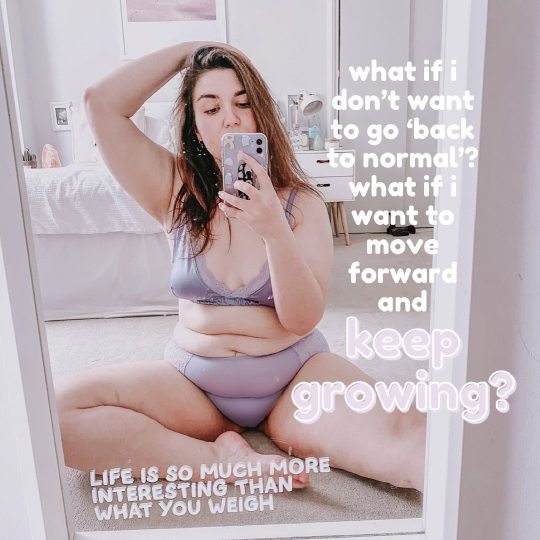
aspoonfulofalice
i don’t know about you, but i’m really struggling to understand the world’s obsession with going ‘back to normal’ ✨
oh, your body’s changed during pregnancy? better get it back to normal as if you haven’t just spent 9 months growing a human inside it!
gained weight because of a global pandemic? god forbid you step outside before you’ve lost the ‘extra’ pounds.
and it’s not just about bodies, either.
what’s that? your priorities have changed and you need more downtime these days? don’t worry — you’ll be back to normal in a flash once you get back into the swing of things.
but why on earth would we want go back? going backwards suggests that our experiences (both mental and physical) are worth nothing — and if we’re always striving to go back to how we were before, how on earth can we be expected to grow? 🌻
both our minds and our bodies are designed to change and develop over time. our skin doesn’t split if it’s stretched — it cleverly creates more room, resulting in those wonderful little marks that tell our own individual stories. we are literally built for growth.
i’m different now, in so many ways. just know that it’s okay if you are too 💗
#body acceptance#fat and free#anti diet#fat positive#diet culture dropout#body liberation#fat liberation#celebrate my size#body shaming#fat shaming#effyourbeautystandards
31 notes
·
View notes
Text
Fat shaming anyone is inexcusable. Fat shaming someone with an eating disorder is unforgivable.
#disordered eating mention#fatphobia#fat shaming#terfs dni#anti terf#radfems dni#anti swerf#anti exclusionary#anti radfem#ableism#mental illness#mental health#mental health stigma#lanasbestdealer#femaleserialkillers#desisapphic#fat anorexic#fat bulimic#anorexia#bulimia#binge eating disorder#nickiminajsglock
237 notes
·
View notes
Text
One of my favorite poetry teachers, Jericho Brown, says something about shame that I've never forgotten, which is when we engage with shame, we are believing the lies that people tell us about ourselves. And there is nothing more worth the risk of telling your story than to eradicate that shame, to speak back to it and begin to claim radical love.
Omotara James, in an interview with Leila Fadel, 21 February, 2024. NPR's "Morning Edition."
Full transcript now up at the following link:
#author interview#new book: poetry#queer represetation#fat representation#Pride#anti-shame#radical love#NPR morning edition
15 notes
·
View notes
Text
I seriously didnt anticipate this level of hate given how relatively few notes the post has, but they're sending me death threats now. CW for extreme fatphobia:

I'm posting this so not-fat people can understand the way people violently hate us for our bodies. All I did was make a post saying our bodies shouldn't be moralized and we deserve bodily autonomy + noncoercive, unbiased healthcare.
This is why while any form of body shaming is wrong, fatphobia is in a different playing field. You wouldn't catch someone saying "the only good skinny person is a dead one!" This anon is pretty much advocating for genocide and/or eugenics against fat people.
#softspoonie#fatphobia#body shaming#death threats#ableism#fat#hellbox#genocide#eugenics#slur tw#anti fatphobia#id in alt
76 notes
·
View notes
Text
Hey does anyone else remember when Ariana Grande licked a donut and said she hated America only to deflect and say that she actually meant that she hates fat kids childhood o*esity? Because I do
35 notes
·
View notes
Text
Okay so I wasn’t looking for spoilers but the fact that none of you warned be about that certain scene with Eddie and Marisol shame on you. Like yes I was aware of the bts pic of her in a robe and the doubling down on him being straight was a high possibility but none of you mentioned it actually happened
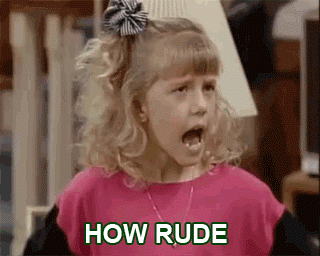
#eddie diaz#buddie#911 abc#anti Eddie/Marisol#like it’s so awkward#and it’s funny in a way cause Buck and Tommy are so amazing#and the chemistry feels so right and perfect along with the writing and than we have whatever the fuck this is anyway#EW!!!!!!! 🤮#can Eddie just be single forever pls like at this point I don’t care as long as I never have to see that again#anyway yeah#shame on you buddie fandom a jump scare warning would have been nice#we are doing that before I moved it 🤮🤮🤮🤮 like I get you have straight sex#literally stop enough enough enough- fat Amy vibes literally like shut the fuck il#up and Eddie oh Eddie the nester you are why babe#I know this was going to happen double down and stuff but really guys you are in your 30s calm tf down or something like do that shit off#screen so I don’t have to see it and can pretend it doesn’t happen thank you
8 notes
·
View notes
Text
I'm so sick of performative activism like it will be the end of me.
Let's not pretend the entire thing with DSMP or Boyfriends (using those are examples because they're the ones I see the most) had *anything* to do with the problematic content/creators. At least, a mass majority of the people who claimed they cared, did not.
It was never about the offensive things Dream said or whatever weird thing that Tommy kid said. It wasn't about the "bad" poly rep (I haven't read the webtoon so I can't say anything about this,) it was never about the racism. It was because it's "cringe." That's it. They will tell it "oh no it's because they're bad people and I don't like their supporters!" And while normally I'd believe them, I don't anymore.
Considering a large (and I mean LARGE) portion of these fandoms are filled with literal children who don't know any better, it's so weird to harass them over liking media y'all deem problematic, as if you didn't like anything problematic as a kid. And I can guarantee you, you did.
Lizzo isn't really that best example but lemme put it this way, the minute she was deemed problematic and an awful person, people dogpiled on her and fat shamed her to all hell. Which was extremely inappropriate and not helping anybody.
The point is, people always wanted to do these things. People always wanted to tell DSMP fans to k*y, people always wanted to send Boyfriends fans death threats, and they always wanted to fatshame Lizzo. The list goes on and on. They just waited until it became "acceptable."
#cringe culture#boyfriends#dsmp#fandom#fandom shit#fat shaming#tw fat shaming#tw death threats#death threats#anti cringe culture#cringe culture is dead#cringe culture is stupid#rambles#if i missed a tag im sorry
13 notes
·
View notes
Text
Learning from love goddesses
The representations below were created hundreds or even thousands of years apart by groups that spoke different languages and lived in different climates. Despite differences in their style, function, and degree of realism, they share common features.



The love goddesses typically have an hourglass figure, with a small waist, larger than average breasts, and pronounced hips. They have a moderate, healthy weight: fairly slim, but not skinny. This Indian statue is two thousand years old.

These two Minoan examples are more than three thousand years old.


Never were obese women widely preferred. Rubens is often cited as a counterexample to conventional beauty standards. But his corpulent figures, such as the image below, are exceptions in a long history of love-goddess representations that fit the general trend. Outliers like this don't nullify the rule.

While fleshier Venuses are seen more often around 1600 AD, Rubens' were heavy even by the standards of his time.
Obese prehistoric figurines like the 30,000-year-old “Venus of Willendorf” are also frequently raised as counterexamples. But they don't qualify as love goddesses. The “Venus” appellation is arbitrary and disputed by scholars. These figurines weren't found with a label, and their true meaning and function are unknown.

"We dug up some stone carvings of fat women" is simply not good evidence that obesity is or ever was considered beautiful.
And there is, in fact, no shortage of ancient figurines which do exhibit the hourglass shape common in verifiable love-goddess representations.
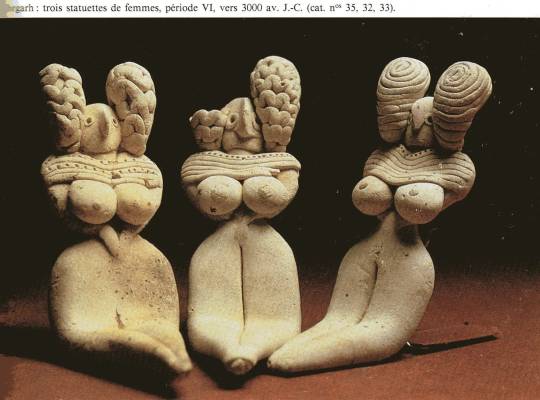

#dispelling beauty lies#women#hourglass#fat liberation#anti fat activism#body positivity#body positive#fat phobia#fat positive#anti fat acceptance#fat acceptance#fat activism#fat positvity#fat pride#fatphobia#fat shaming#health at every size#anti obesity
4 notes
·
View notes
Text
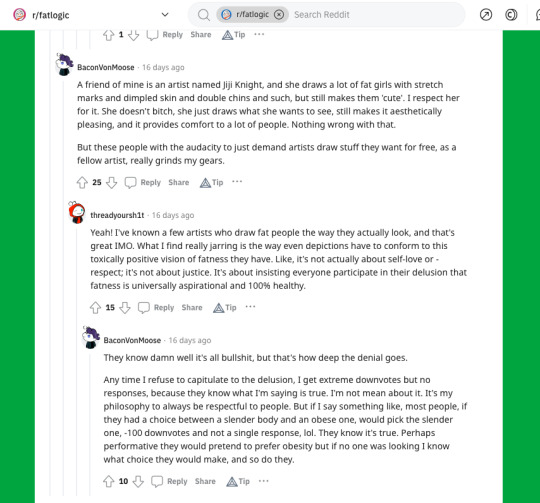
Oh god I had this screenshot for days since someone notified me my posts were circulating on r/fatlogic (this was not any of those posts)
There are about 2 options here and none of them are good
One of the only good sources of fat representation in art is friends with at least one r/fatlogic user who spouts vile bullshit insulting fat people simply for existing
Some r/fatlogic user is pretending to be friends with one of the only sources of good fat rep in art in order to better insult fat people for pointing out that fat rep in art is extremely lackluster
And I don't like either of those possibilities
23 notes
·
View notes
Photo

WOMAN IN A BOTTLE - Julia Tochilina
26 notes
·
View notes
Text

The fat body has long been a site of medical surveillance, and this has not changed during the COVID-19 pandemic. Early research focused on linking fatness with more severe disease outcomes, yet many have questioned the strength of this association, including within the pages of this journal.
Fat communities, such as the National Association to Advance Fat Acceptance (NAAFA), have contested society’s stubborn generalizations that associate fatness with disease and poor health outcomes, and push back against the assumption that fat people have little regard for themselves or their own well-being. They argue that thinking about obesity as a disease or medical risk (such as for severe COVID-19) contributes to stigma because it positions larger bodies as drains on an already-taxed health care system.
The NAAFA mobilizes the term “fat” in its fight against weight discrimination and fatphobia in all aspects of life, including in employment, health care and education. Similarly, as social scientists, we use the term “fat” rather than the deeply problematic medical term, “obesity,” which causes harm to people under the guise of benign objectivity. Categories can shape how individuals view themselves, as philosopher Ian Hacking has argued; they reinforce judgments about people who do not conform to a norm. Thus, “obesity�� is not merely a statistical category, but is rather an evaluation about what constitutes an ideal weight. To “fatten” a category, Mollow and McRuer explain, “means examining it through the lenses of fat studies and the fat justice movement.”
Scholars of fat studies understand fatness as a way of thinking about bodily diversity. This literature maintains that fatness should be uncoupled from pathology, as such framings attach fatness to a sense of moral weakness and failed citizenship, and can fuel stigma in various settings, even health care. Such an uncoupling is increasingly supported by medical and population health research, which suggests that people who are labelled obese are not necessarily unhealthy.
There's a really weird intersection between people who want to shame and scold anti-vaxers - whether COVID or MMR - over "the science," and those who want to celebreate obesity, and deny or outright lie about "the science" and the health impacts of obesity because recognizing scientific reality is "shaming."
Not everything needs to be "destimatized." That doesn't mean people need to be actively harassed. But anti-science, denial of basic human biology, and rejection of objective reality don't need to be "normalized," nor do we need to pretend there are no consequences, no human or financial cost, just because some people prefer to hear a comforting lie over a painful truth. Any more than Flat Earth needs to be "normalized."
People who are obese know they're obese. They carry the awareness and the guilt. And in some cases, it's a symptom of a larger problem, particularly mental health issues, resulting in a feedback loop. "Normalizing" obesity is like normalizing alcoholism. It doesn't help the person, and it hurts them by encouraging them to stay stuck, encouraging the lie that they don't deserve better.
You “empower” people by telling them the truth.
-- The Stoic Emperor
--
"Fat Studies" is a real - in the sense it exists, not the sense that it's intellectually or academically legitimate - field in the same hypothetical Humanities that houses the other bogus grievance-based "Studies" fields. As with Queer Theory, it spun off directly from Feminist Theory, and closely parallels Disability Studies in asking why we think it's a good idea for bodies to work and people to live long healthy lives without the deleterious effects of excess weight on the body.
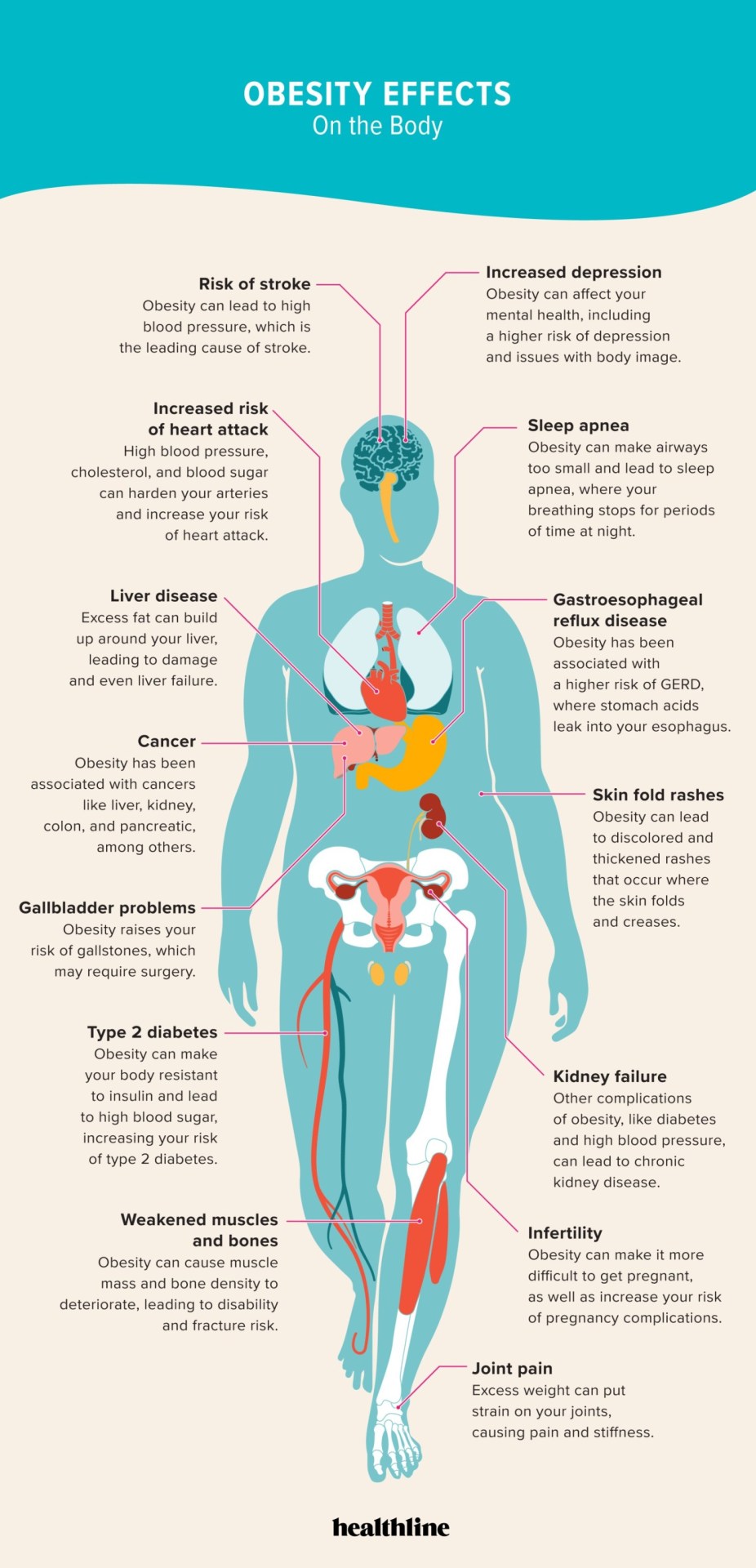
It has decided that the only reason people are concerned about obesity is a hatred of fat people, and a worship of an "ideology" it dubs "healthism." Apparently, not being chronically unwell is an ideology.
Health-ism is a belief system that sees health as the property and responsibility of an individual and ranks the personal pursuit of health above everything else, like world peace or being kind. [..] Health-ism judges people’s human worth according to their health.
-- Lucy Aphramor, "What is Health-ism"
One supposes that Ms. Aphramor is projecting her guilt in the creation of such hyperbole.
youtube
Let's take a look at excerpts from "The Fat Studies Reader," by Esther RothBlum and Sondra Solovay (TOR).
"As a new, interdisciplinary field of intellectual inquiry, fat studies is defined in part by what it is not.
For example, if you believe that fat people could (and should) lose weight, then you are not doing fat studies—you are part of the $58.6 billion-per-year weight-loss industry or its vast customer base (Marketdata Enterprises, 2007).
If you believe that being fat is a disease and that fat people cannot possibly enjoy good health or long life, then you are not doing fat studies. Instead, your approach is aligned with “obesity” researchers, bariatric surgeons, public health officials who declare “war on obesity” (Koop, 1997), and the medico-pharmaceutical industrial complex that profits from dangerous attempts to “cure” people of bodily difference (more on “obesity” later).
If you believe that thin is inherently beautiful and fat is obviously ugly, then you are not doing fat studies work either. You are instead in the realm of advertising, popular media, or the more derivative types of visual art—in other words, propaganda."
"If you live in, and believe in, an objective reality, you're not doing Fat Studies."
"American culture is engaged in a pervasive witch hunt targeting fatness and fat people (a project that is rapidly being exported worldwide). Although this urge to eradicate fat people continues, it is not only challenging to be fat, but also especially challenging to question any aspect of the witch hunt on fat people (not that it is so very comfortable to be thin during a weight-based witch hunt)."
A "witch hunt," and yet shaming Rebel Wilson, Adele, Jennifer Hudson and Melissa McCarthy for their "betrayal" - their word, confirming an ideological motive - for losing weight is what's socially acceptable. As is usually the case with Critical Social Justice ideologies, this victimhood posture comes from those who hold systemic influence.
"I can definitely relate to feeling betrayed when celebrities do that," [...] "My initial gut reaction is that it almost feels like a hero is no longer a hero," [..] "I was like, 'I love her. She looks like me,'" Baker recalls. Now, she says, "It hurts."
Imagine someone saying this about Adele gaining weight, and then consider who is really conducting the "witch hunt".
The language being deployed here is deliberate: "this urge to eradicate fat people" makes people think of Auschwitz or firing squads or the like, when it means no such thing. It's a postmodernist strategy to adopt attributes as "identity" and then cry "eradication" or "genocide" when they're not needed any more. People leaving Islam is framed as "cultural genocide," although people leaving Xianity is not framed the same way. Helping babies to hear is "cultural genocide" or some kind of bigotry.
We're seeing the same thing at the moment with Queer Theory. Those who subscribe to Gender Ideology oppose exploratory therapy, and demand unquestioned affirmation of a child's internet self-diagnosis. To ask a child why they think they might be "trans" and to figure out what might be the cause(s) - typically, homosexuality, autism, social issues, depression, or regular everyday gender non-conformance - is framed as "Conversion Therapy." Because it means the child might find a more useful, accurate diagnosis and abandon "trans" as a self-diagnosis (identity). As if it's comparable to attaching gay men and women to electrodes and electrocuting them if they don't respond to the opposite sex, dunking them in ice water, or cloistering them away and bombarding them with religious dogma until they conform.
"[The Fat Underground] viewed the effort to eradicate fat people via weight loss as a form of genocide perpetrated by the medical profession. The Fat Underground was influenced both by feminism and by radical therapy, a type of treatment that put the focus of change on society, not on individuals. In the words of Gudrun Fonfa, “By refuting the dogma of the diet industry and rejecting the aesthetics of the patriarchal culture, [we made] activists out of each individual fat woman who liberated herself from a lifetime of humiliation” (Fishman, 2008)."
"The problem is not that I'm overweight, it's that you're not celebrating me." They're totally serious in calling it "genocide" when obese people lose weight and reduce the likelihood of obesity-related health issues. Such as death.
"But to uphold the rigor of the scientific convention limits engagement with meaning making: language is not a neutral tool but rather a powerfully charged political vector. The words that we use here influence our ability to generate possibilities (Lorde, 1984). Rather than locate our writing in the culture of positivism by choosing a relatively static scientific discourse, we have instead chosen to engage poetry as a way of “crafting a praxis-oriented culture” and troubling the status quo (Dorazio- Migliore, Migliore, & Anderson, 2005). In welcoming subordinated poetic voices, around which we have arranged our chapter, we deliberately reject the certainty of positivism (as well as the privilege that it affords us) and plump for a more unruly interface with our readers. We hope that this style presents dominant theories as indefinite, negotiable, situated, and open to query."
"Being limited to reality is confining when you want to invent and promote ideological nonsense, so we're here to convince you that it would be close minded not to consider poetry to be just as legitimate as science."
"In valuing feminist epistemologies the authors acknowledge, as Leahy writes, “that women’s experiences and knowledge have often been marginalized or ignored, often at great cost” (Leahy, 2001, p. 39). Of course, in foregrounding gender we do not wish to obscure axes of ideological bias related to class, race, sexuality identity, age, or disability. Our hope is that this chapter encourages more dietetic theorists and practitioners to take up the notion of a socially integrated feminist science for dietitians, one that refuses to disappear feminist discourses on fat."
That is, science doesn't echo feminist dogma sufficiently. The document actually describes science as: "a masculinist science that purports to be impartial and, denying the interweaving of science with society, sustains dietetics as socially disintegrated and nonfeminist." And therefore proposes an ideologically motivated parallel domain - "feminist science" - that does.
"If Fat Studies scholarship is in its infancy within the United States, it is practically fetal in the United Kingdom, but this may be changing. September 2007 heralds “Bodies of Evidence: Fat Across Disciplines,” an interdisciplinary and international conference at the University of Cambridge’s Centre for Research in the Arts, Social Sciences, and Humanities (CRASSH). This conference seeks to “examine the obese body as a case study of both the contested nature of evidence and as a site for the construction of interdisciplinary evidence and problem-solving” (2007)."
Zero medical, biological or health scientists. English majors writing pretentious screeds about obesity.
Finnish researcher Harjunen clarifies the need for increased cross-cultural understanding:
I do realise that we non-American activists need to bring this issue up. For example the case of health care is very different in the Nordic countries and UK (I mean that it is universal, you are not denied access to medical care because of the weight as in the insurance-based systems), weight loss surgeries are almost non-existent here, but so are services for fat people, as well as the discussion about the politics of fat unfortunately. People believe in medicine, so-called health experts and public health campaigns almost blindly. My doctoral dissertation on fatness will be the first one in this country that comes from the field of social sciences not medicine or health sciences. (e-mail correspondence, 3 May 2006)
"Listen to politically-motivated ideologues with unfalsifiable postmodern hypotheses, instead of those whose work is open to scientific scrutiny."
"If we follow the normal procedures of science, we need to show that there is evidence for our hypothesis before assuming it is true. But in real life, scientific consensus also occurs because a priori assumptions are so seamless that they are not questioned.
One of the a priori assumptions that does not seem to require evidence is the idea that being fat is unhealthy.
[..]
Because people in our culture, including physicians, subscribe so religiously to these assumptions, they have not been subjected to adequate scientific testing."
"Having already rejected science as being legitimate, we'll now pretend to 'correctly' apply science, despite not having any science background, after first baselessly asserting that all science is just 'religiously' supported by 'assumptions,' and claiming no evidence or testing whatsoever exists for the decades of research into obesity."
Obesity is just assumed to be unhealthy. For no reason other than bigotry and oppression.
Xianity does the same thing when they ramble about the laws of thermodynamics and that no evidence exists to support evolution. Or when they call atheism a "religion" or that it requires more "faith."
"If fatness causes health problems, why does it not show up in all fat people? Why do those same health problems show up in thin people? Why do the diseases attributed to higher BMI seem to also be characterizable as diseases of aging or chronic stress?"
"What are statistics and how do they work? I wouldn't know, because my field doesn't use data."
"Like other forms of mother blame, mother blaming in the context of the “obesity epidemic” is as much or more about social anxieties regarding the changing role of women, as well as the changing racial and ethnic composition of the nation, than it is about any real public health “crisis.” Like the social construction of the “obesity epidemic” in general, the blaming of mothers for their kids’ “excess” weight draws attention away from very real structural inequalities in health care, education, and employment that are often felt hardest by women and minorities.
[..]
Given the function of the “obesity epidemic” to draw attention away from structural inequality, as well as the ways in which mother blame for childhood “obesity” ties in with other forms of mother blame, one would think that feminists would have taken up the issue of fat rights in the same way they have championed reproductive rights, the rights of working women, and the rights of children. I argue, however, that a general cultural acceptance of the “fat = unhealthy” equation, along with a larger societal fat phobia, in part explains why the “obesity epidemic” is only now beginning to be critically deconstructed by mainstream feminism and social science. This situation strongly makes the case for an interdisciplinary field of fat studies in which scholars and activists can consider the increasing intertwining of sexism, homophobia, racism, classism, and fat phobia, among other issues."
"Pointing out that your kids are overweight is really about hiding racism, sexism and homophobia... somehow."
"That fat and queer people would heartily embrace science and medicine as a solution to their socially constructed problems is redolent of Stockholm syndrome—after all, science and medicine have long been instrumental in oppressing fat and queer people, providing argument after argument that pathologize the homosexual or “obese” individual (whether the mind or the body). Michel Foucault’s work (1980) has shown us that placing bodies under the microscope of science, in the name of liberal projects of self-improvement, in fact reinscribes their deviance and increases their oppression."
The paper simply continues to assert that obesity is a "socially-constructed problem" invented by science and indirectly - through the use of the Stockholm syndrome comparison - invokes False Consciousness, a Marxian concept whereby "oppressed" groups internalize and reproduce the same assertions their "oppressors" use to "oppress" them. The inclusion of language about homosexuality is no accident - Fat Studies regards obese people as being comparable to homosexuals, and insists that messaging relating to obesity and health problems is based entirely on bigotry, and that encouragement to lose weight and get healthy is comparable to insisting gay people should just try to have heterosexual sex (making gay people straight is, by the way, now a crusade of Queer Theorists).
"If you believe that being fat is a disease and that fat people cannot possibly enjoy good health or long life, then you are not doing fat studies. Instead, your approach is aligned with “obesity” researchers, bariatric surgeons, public health officials who de- clare “war on obesity” (Koop, 1997), and the medico-pharmaceutical industrial com- plex that profits from dangerous attempts to “cure” people of bodily difference (more on “obesity” later)."
"We're going to deliberately ignore that weight loss can be achieved inexpensively by making lifestyle changes, such as increasing exercise, reducing caloric intake, reducing portion size and making substitutions, and instead paint concern over obesity as a giant corporate conspiracy and grab for money, blamed on 'Obesity, Inc.,' a parallel to the 'Big Pharma' railed against by anti-vaxers. And just as anti-vaxers ignore 'Big Placebo,' the multi-billion dollar 'alternative medicine' industry, we're going to conveniently ignore the multi-billion dollar industries that promote fast foods, comfort foods and sedentary lifestyles."
"In 2016, the aggregate medical cost due to obesity among adults in the United States was $260.6 billion."
At least "2.8 million people [die] each year as a result of being overweight or obese." In the last three years of the COVID pandemic, there have been 6.6 million deaths attributed to/caused by the virus. This means that as an average over the three years of COVID, obesity is still outpacing COVID deaths.
One of the strongest contributing factors to death resulting from COVID from those under 65 was obesity, but hardly anyone talked about it, at the risk of being scolded about "fat-shaming." The typical activist tactic was, "well this fit, 30 year old runner died of COVID, so I don't have to know what 'contributing factors' means". But ignoring it didn't change that it was there.
Doctors are even being told not to weigh patients, in case they find it "shaming." Which is nothing but denial. Whether you're weighed by the doctor or not doesn't change your weight - you're just refusing to know or acknowledge it.
This, then...

... functions the same as this.

The final word I'll leave to the Fat Studies scholars. This vacuous word salad, again from the Fat Studies Reader, merges crazy from across the social justice spectrum into one rambling, incoherent paragraph of pseudo-intellectual nonsense. We shouldn't be using these people's ideas to guide society.
Imagination nurtures dietetic theory and practice (Berenbaum, 2005), whereas an impoverished imagination glorifies the status quo by silencing and repressing vulnerable, feminist texts (Gingras, 2005b). Poetry is born of the imagination, instigates rather than routinizes, and illuminates alternative ways of telling, knowing, and being a dietitian. Poetics enlivens the emotional capacity of dietetic practice, which buttresses a feminist dietetic ethics because our work is at its core a fundamentally human endeavor. Our intention with this chapter is to bring forward contemporary examples within dietetics where anti-fat, healthist discourse enacts a type of violence; to integrate social feminist theories on the body and gender performativity with dietetic theory, practice, and agency; and finally to offer mindfulness and poetics as reconciliatory discourses whereby difference is not viewed as deviance, and complicity is rarely tolerated.
#Peter Boghossian#Fat Studies#fat shaming#fat acceptance#social justice#critical social justice#health at any size#wokeism#woke#cult of woke#wokeness as religion#woke activism#biology denial#human biology#anti science#antiscience#obesity#overweight#obesity epidemic#religion is a mental illness
28 notes
·
View notes